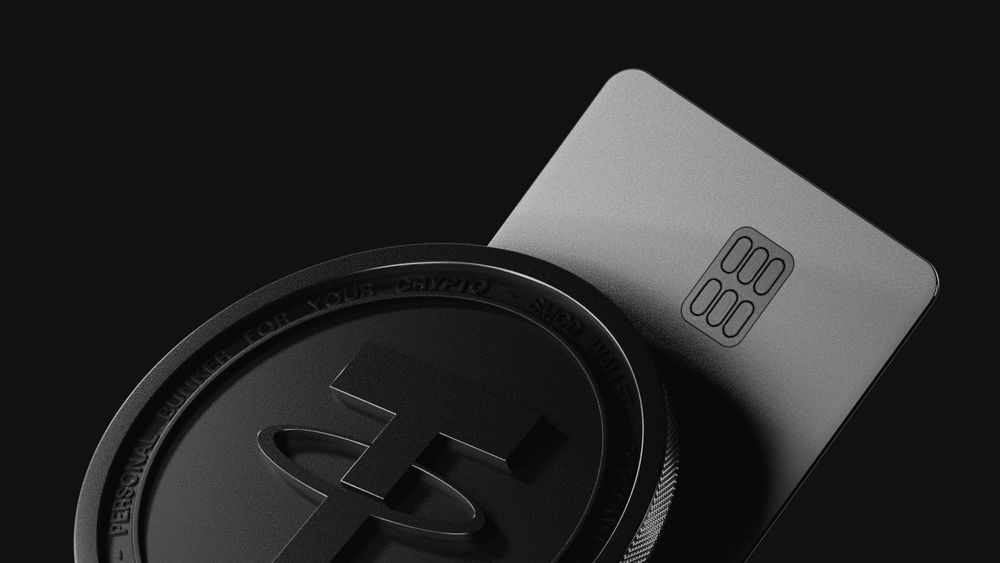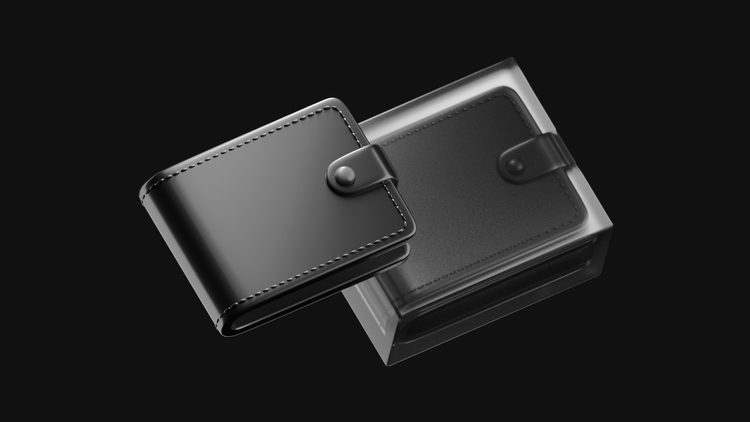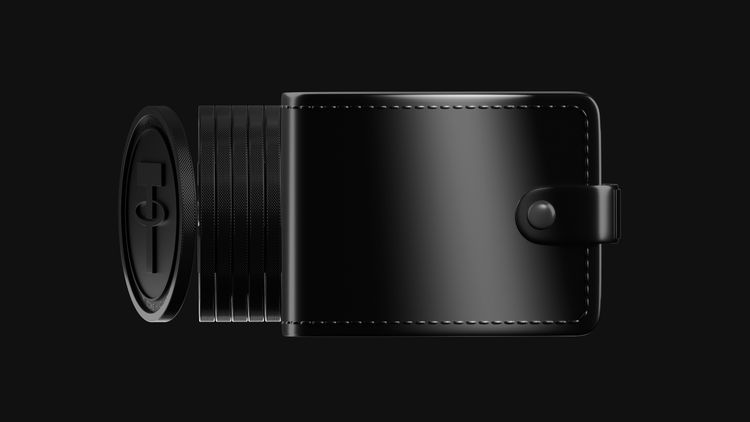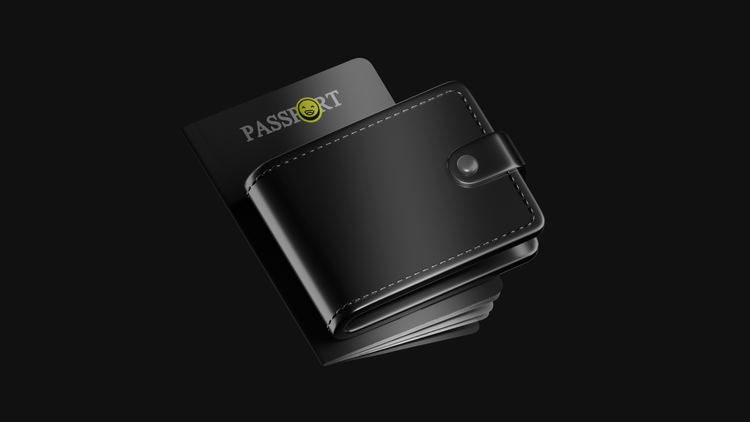Best Crypto Wallets: Your Ultimate Guide to Safe and Smart Crypto Storage

Choosing the best crypto wallet is a key step in taking control of your digital assets. Every wallet offers something different, tailored to how you interact with crypto. As the ecosystem expands, so does the range of tools designed for investors, traders, and everyday users. Understanding what sets them apart will help you make smarter, safer choices in the crypto space.
This guide covers everything from how wallets work to the different types available. We’ll walk you through key features to look for, common mistakes to avoid, and help you choose the best crypto wallet for your needs.
What’s a Crypto Wallet?
A crypto wallet is your personal gateway to the digital currency world. It lets you store, send, and receive crypto safely, acting as a secure interface between you and the blockchain. But unlike your regular wallet, it doesn’t hold physical money. Instead, it stores private keys — a kind of secret password that proves your digital asset ownership.

When someone sends you Bitcoin, Ethereum, or another coin, the transaction is recorded on the blockchain. Your wallet reads this data and gives you access to your funds. If you lose access to your wallet and don’t have a backup, your crypto is gone forever.
There are many crypto wallet types, from sleek mobile apps to high-security hardware devices, each offering different features and protection levels. No matter if you’re just starting out or deep into DeFi, understanding how wallets work is the first step to taking control of your crypto journey.
How Do Crypto Wallets Work?
Every crypto enthusiast knows that cryptocurrency doesn’t live inside your computer. It exists on the blockchain, a decentralized digital ledger that records all transactions. Your wallet doesn’t store the coins themselves but gives you access to the blockchain records that prove your ownership of them.
For example, if the blockchain says you own one Bitcoin, that information will show up in your wallet. However, you only get access to the portion of the blockchain that belongs to you — your digital funds and their history.

Every crypto wallet comes with its own unique address for each coin you use. Think of it like a bank account number. Ethereum’s founder, Vitalik Buterin, famously used the address: 0xab5801a7d398351b8be11c439e05c5b3259aec9b. Your wallet will generate something similar, but unique to you.
These public addresses are safe to share when receiving crypto. But behind the scenes, your wallet also holds a private key — a secret string of characters that confirms you’re the rightful owner. While public keys enable you to receive funds, private keys authorize transactions. If someone gets access to your private key, they can take full control of your assets.
To help with security, the best crypto wallets use a seed phrase, a random word series, generated when you set up your wallet. This phrase is your backup key. If you lose access to your device or forget your password, the seed phrase can restore your funds. But if someone else gets that phrase, they can do the same, so you need to guard it with your life.
To a crypto newcomer, all these precautions may seem over the top. But in crypto, there are no second chances. Once a transaction is confirmed, it can’t be reversed. If your wallet is compromised, your funds are gone, and usually, there's no way to trace or recover them.
Let’s summarize the key points of how crypto wallets work:
- Your wallet generates a public and private key pair
- The public key becomes your wallet address to receive crypto
- The private key is used to sign and confirm transactions
- Wallets access the blockchain to reflect your balance, not store coins
- A seed phrase acts as a master backup for your private keys
Now that you understand the basics of how crypto wallets function, let’s break down the main crypto wallet types available.
Crypto Wallet Types: Hot, Cold, and Everything in Between
Crypto wallets come in all shapes and sizes, each with its own strengths to fit different needs. While we don’t yet have a one-size-fits-all wallet that does everything perfectly, who knows maybe the ultimate solution is just around the corner. Until then, let’s break down the most common crypto wallet types you’ll encounter.
At their core, crypto wallets fall into two main categories: hot wallets (connected to the internet) and cold wallets (offline storage). Each has its own trade-offs between convenience and security.
Hot wallets are designed for quick access to your crypto and fast transactions, making them ideal for everyday use. If you need to send crypto in seconds, a hot wallet’s got you covered.
Here are the advantages and disadvantages of using hot wallets:
| Advantages | Disadvantages |
| Instant access | Lower security |
| User-friendly | Phishing attack risk |
| Convenient for daily use | Device dependency |
| No additional hardware | Less suitable for storage |
| Easy integration | |
| Fast setup |
On the other hand, cold wallets are designed to be more secure but make accessing your funds more difficult. Hardware wallets are a great example of this. You’ll need to go through several security layers and transaction confirmations to transfer funds from them.
Let’s explore the strengths and weaknesses of cold wallets:
| Advantages | Disadvantages |
| High-level security | Less convenient |
| Ideal for long-term holding | Not for frequent use |
| Immune to online threats | Hardware can be lost |
| Private key control | Higher initial cost |
If you’re wondering which one you should choose, then use a mix of both — a hot wallet for day-to-day spending and a cold wallet to stash your long-term holdings securely.
Now let’s dive deeper into the most common variations of these two crypto wallet types.
Multicurrency Wallets
They are designed for users who manage a diverse portfolio. These wallets support four or more different cryptocurrencies, making them a flexible choice for traders, investors, and anyone exploring multiple blockchain ecosystems.
Multicurrency wallets are among the most popular wallet types on the market, offering the convenience of storing everything in one place. A multicurrency wallet can come in various forms, for example, mobile apps for everyday access or hardware devices for extra security. This wallet type is a must-have for those who value versatility and efficient portfolio management.

Browser-Based Crypto Wallets
These crypto wallets offer a streamlined, no-installation approach to managing digital assets. Browser-based wallets operate as browser extensions, allowing you to interact with blockchain apps and store crypto without downloading software. Your assets are secured with a secret recovery phrase. Be sure to memorize it or store it in a safe place since it's the only way to restore access to your wallet.
Here’s a clear breakdown of the browser-based crypto wallet pros and cons:
Advantages:
- No installation needed, so they don’t take up space on your device
- Easy to use directly from your browser interface
- Instant access to funds via the recovery phrase
- Can be restored on another device using the same phrase
Disadvantages:
- The recovery phrase is generated once and cannot be changed
- Limited browser compatibility
- Without a dedicated mobile app, browser wallets won’t work on smartphones
Browser wallets are great for fast access and interacting with Web3 apps, but they require caution and careful backup of your recovery phrase.
Hardware Wallets
They are widely considered the safest way to store cryptocurrencies. These are physical devices similar to USB drives or digital signature tools that securely store private keys offline, keeping your assets out of reach from hackers.
Their standout feature is cold storage: when the device is disconnected, there’s no way to access your funds remotely. Hardware wallets rely on multiple protection layers, including PIN codes, passwords, and anti-tampering systems.
There are several models on the market, each with unique features and designs. You must connect the wallet to a computer and enter pre-set codes to make transactions. Recovery options can also be set up, allowing access even if the device is lost or damaged.
Key advantages:
- Industry-leading security for crypto storage
- Recovery options protect funds in case of loss or damage
- Offline storage ensures immunity to most cyber threats
Drawbacks:
- Relatively expensive compared to other wallet types
- Requires special software and isn't ideal for frequent use or mobility
- Initial setup can be complex for beginners
A hardware wallet is the gold standard for those prioritizing maximum protection over convenience.
Paper Wallets
Paper wallets offer a surprisingly simple yet highly secure way to store cryptocurrencies. They work by generating a unique QR code that acts as your private key. Once printed, this code becomes your gateway to accessing crypto funds without relying on any digital device.

To create a paper wallet, a specialized program generates a wallet address and its corresponding private key. Before you begin, it's crucial to ensure a secure setup:
- Avoid public Wi-Fi
- Run antivirus software
- Check your system for malware
You can disconnect from the internet entirely before generating your keys for added protection.
Once printed, store the wallet in a safe place, preferably laminated to protect it from moisture or damage. Some users split their printed key into sections for maximum security and store them separately.
Advantages:
- Extremely secure if created and stored properly
- Immune to online hacks and cyber attacks
- Simple to use and easy to create multiple wallets
Disadvantages:
- If the paper is lost or damaged, access to funds is permanently lost
- No recovery options if the private key is compromised or unreadable
It’s worth mentioning that despite their theoretical security, paper wallets suffer from considerable drawbacks. Creating one requires advanced technical skills and complete offline key generation. A single mistake during printing, storage, or scanning can lead to the total fund loss. That’s why paper wallets are now considered outdated and not recommended for beginners.
PC Crypto Wallets
PC crypto wallets are popular tools for managing your digital assets right from your computer. These wallets come in two main types:
- Full or ‘thick’ wallets require downloading the entire blockchain to your device
- Light or ‘thin’ wallets operate without the need to download the full blockchain
To use a PC wallet, you’ll install specialized software that allows you to send, receive, and store cryptocurrencies securely. While you can keep your assets offline for added safety, internet access is necessary when depositing or withdrawing funds.
The real PC wallet strength lies in its flexibility since it combines features of both hot and cold wallets, letting you balance convenience with security.
Advantages:
- Combines the hot wallet ease with the cold wallet security
- Assets are stored directly on your computer, giving you full control
Disadvantages:
- Quick access from other devices is limited since the wallet software must be installed
- Requires significant storage space, especially full wallets downloading the blockchain
- Top security is maintained only when offline and disconnected from the internet
PC wallets suit users who want robust control over their crypto without compromising on security, but they do require a bit more commitment to setup and maintenance.

Mobile Crypto Wallets for Android and iOS
They are rapidly gaining popularity as cryptocurrencies move closer to everyday use. Since most people rely on smartphones, having a crypto wallet on Android or iOS provides quick and easy access to your assets without needing a computer.
These wallets offer all the essential features for storing, sending, and receiving digital currency. While mobile devices cannot match the security level of desktop or hardware wallets, their convenience and user-friendly design make them very attractive to many users.
Advantages:
- Wide app selection from various exchanges and developers
- Ability to manage assets and make transactions anytime, anywhere with an internet connection
Disadvantages:
- Lower security compared to other wallet types
- Most users prefer to keep only small amounts in mobile wallets
- Best used in combination with more secure storage options
Mobile wallets are perfect for daily transactions and quick access, but for long-term storage, it’s wise to pair them with more secure solutions.
Exchange Internal Wallets
Storing cryptocurrency is also possible by creating an account on a specialized exchange. When you register, the platform automatically provides you with a wallet ready for immediate use.
Most exchanges are centralized, which can negatively impact the security level. However, exchanges are constantly improving their systems and developing new protection measures to enhance user trust and safeguard funds.
Before choosing an exchange, carefully review its policies and user feedback. Avoid platforms that frequently block accounts or charge excessively high fees for transactions.
While decentralized wallets offer stronger security, centralized exchange wallets often provide more features and convenience. It’s crucial to understand all the details and risks involved before entrusting your funds to any exchange.
Let’s take a closer look at the comparison table outlining the key features, pros, and cons of different crypto wallet types:
| Wallet Type | Device/Platform | Supports Multiple Currencies | Internet Required | Security Level | Ease of Use |
| Multicurrency wallets | Varies (App/Desktop/Web) | Yes | Usually | Medium–high | Easy |
| Browser-based wallets | Web browser | Often | Yes | Lower | Very easy |
| Hardware wallets | USB device (Ledger, Trezor) | Yes | No (Offline) | Very high | Moderate |
| Paper wallets | Printed document | One/Few | No | Very high | Complex |
| PC crypto wallets | Desktop applications | Often | Optional | High | Moderate |
| Mobile wallets (Android/iOS) | Mobile app | Yes | Yes | Medium | Easy |
| Exchange internal wallets | Hosted on exchanges | Yes | Yes | Lower (custodial) | Very easy |
Each crypto wallet type offers unique advantages, depending on whether you value maximum security, convenient access, or compatibility with a wide range of coins. From cold storage options like hardware and paper wallets to convenient mobile and browser-based solutions, the key is finding the balance that fits your crypto lifestyle. Choose wisely, and your assets will stay both safe and accessible.
Key Features to Look for in a Crypto Wallet
Not all crypto wallets are built the same. While some focus on speed and convenience, others are designed with advanced security in mind. Choosing the right one means knowing what features truly matter. From private key control to multi-currency support, here are the essential tools and technologies that define a reliable and user-friendly crypto wallet, no matter your experience level or investment goals.
Multilanguage Support
Multilanguage support makes crypto wallets more accessible for users worldwide. Using a wallet in your native language reduces errors, boosts confidence, and ensures smoother interaction with features, settings, and security options.
Extra Features
While the primary functions of crypto wallets are storing, buying, and selling digital assets, many modern platforms offer extra features that enhance your experience and open up new ways to earn or manage crypto.
| Feature | Description |
| Lending | It works similarly to a bank deposit. You can lend your assets to others or to the platform itself and earn interest in return. A simple way to make passive income from idle coins |
| Staking | Coins are temporarily locked on networks that use the Proof-of-Stake mechanism. In return for helping validate transactions, you earn rewards from network fees and newly created blocks |
| Spot trading | Real-time buying and selling of cryptocurrencies. Offers immediate execution of trades based on current market prices, ideal for those who actively manage their assets |
| P2P transactions | Peer-to-peer exchanges allow you to trade directly with one another. These platforms often support various payment methods, including options like cash trades for Bitcoin |
| Buying crypto with fiat | Many wallets come with built-in terminals that let you buy crypto directly using a bank card. This feature makes onboarding faster and more convenient for beginners |
| Mixers | Advanced privacy tools that blend your transaction with others. This makes it nearly impossible for third parties to trace the origin or destination of your funds Note: Using crypto mixers may violate laws in some countries. For example, services like Tornado Cash faced sanctions in the US and EU. Plus, modern blockchain analytics can partially trace transactions, especially if extra privacy steps aren’t taken. Always check your local laws and understand the risks before using a mixer |
| Analytics and blockchain monitoring | For active traders and investors, some wallets offer built-in tools like price indicators, trend graphs, and transaction monitoring to help you track market movements and make informed decisions |
Privacy and Security
Blockchain transactions are encrypted using advanced cryptographic methods, making networks like Bitcoin nearly impossible to hack through brute force. Still, user data can be compromised, usually due to code vulnerabilities rather than the blockchain itself. Hackers exploit weak points to steal passwords and transfer funds.
To minimize risks, consider using:
- Non-custodial wallets that give you full control over your private keys
- Paper or hardware wallets for offline storage
- Apps from reputable exchanges that offer strong built-in security protocols
One common trick used by scammers is to create fake wallets or clone real ones, embedding malicious code to steal credentials. That’s why open-source wallets are recommended since they allow the community to audit the code for hidden threats.
Keep in mind that there are also modern threats: even if the blockchain itself can’t be hacked, your actions leave digital footprints. Companies like Chainalysis and Elliptic use advanced blockchain analytics to track transactions, including those through mixers and privacy protocols. This is especially true in countries with strict crypto regulations. The higher your privacy goals, the more caution and expertise you need.

If you're not tech-savvy enough to review code yourself, avoid lesser-known wallets altogether. Always download wallets from official websites or verified sources to reduce your exposure to fraud.
Interface
When choosing a crypto wallet, beginners often prioritize a simple, user-friendly interface. While clean design and easy navigation are important, there are other crucial aspects to consider:
- Error protection. A good wallet should protect against accidental actions like mistyping a wallet address. Check whether transactions to invalid addresses can be reversed and whether there are safeguards against accidental wallet deletion
- Fast page load times. A responsive interface enhances usability
- Clear and structured menu. A well-organized menu makes it easier to find and perform key operations
Transaction Fees
Most software wallets are free to use, but transactions, especially those processed through crypto exchanges, usually come with fees. It’s important to review a platform’s fee policy before using it.
Be cautious if the fee is unusually low. This could mean:
- Slower transaction times, as low-fee payments are often processed last
- Risk of unreliable service, especially with lesser-known platforms
In general, the higher the fee, the faster your transaction is confirmed. Depending on the exchange, withdrawals can take anywhere from a few minutes to several days.
Multi-Currency Support
Crypto wallets fall into three main categories:
- Bitcoin wallets. Designed exclusively for the Bitcoin blockchain
- ERC-20 token wallets. Support tokens built on the Ethereum network
- Multi-currency wallets. Allow you to store and manage various coins and tokens across different blockchains
Cryptocurrency prices fluctuate not just daily but hourly, and new projects emerge regularly. While Bitcoin was the first and remains dominant, its top position isn't guaranteed forever. That’s why a multi-currency wallet is a smart choice, especially for users in dynamic markets. It offers the flexibility to perform transactions across different networks and interact with a wide range of assets.
Support for Multiple Addresses
Blockchain technology doesn’t require user registration, which means you can create as many wallet addresses as you like. If you're holding a significant cryptocurrency amount, it's wise to spread your funds across multiple addresses. This strategy enhances security, and if access to one wallet is lost, the rest of your assets remain safe and accessible.
Best Hardware Crypto Wallets
Hardware wallets are considered the most secure way to store cryptocurrency. These physical devices keep your private keys offline, protecting them from online threats. Let’s take a closer look at some of the top-rated hardware wallets on the market.

Ledger Nano X
The Ledger Nano X is widely recognized as one of the top 10 crypto wallets in the world. It supports over 5 500 cryptocurrencies and features Bluetooth connectivity, making it easy to manage assets via smartphone or desktop. The built-in secure element chip ensures your private keys remain offline and safe from online attacks. It also offers compatibility with Ledger Live for seamless portfolio tracking and staking.
Trezor Model T
The Trezor Model T ranks among the top crypto wallets for its advanced security and user-friendly design. It features a touchscreen display, supports thousands of cryptocurrencies, and allows integration with various third-party apps. As an open-source device, its firmware is regularly audited by the community. The Model T is ideal for users who prioritize transparency and want full control over their private keys.
Ledger Nano S Plus
An upgraded version of the popular Nano S, the Ledger Nano S Plus secures a spot in the best crypto wallet list thanks to its affordability and reliability. It supports the same wide range of cryptocurrencies as the Nano X, but without Bluetooth, offering USB-only access for enhanced safety. Its larger screen and increased storage capacity make it perfect for users managing multiple assets while staying secure.
Best Software Crypto Wallets
Not every crypto user needs a hardware device to keep their assets safe. For those who prioritize convenience and accessibility, software crypto wallets offer a powerful alternative and are available as desktop, mobile, or browser-based apps. They're ideal for everyday transactions, trading, and managing multiple tokens. Here are some of the top 10 crypto wallets in the software category, trusted by millions worldwide.
Exodus Wallet
Exodus stands out for its sleek design and ease of use, making it a top pick for beginners and advanced users alike. Available on desktop and mobile, it supports over 260 crypto assets and includes a built-in exchange for seamless swaps. Users appreciate its intuitive interface, real-time portfolio tracking, and strong customer support. While it’s not open-source, Exodus integrates with Trezor for added security.
Trust Wallet
Backed by Binance, Trust Wallet is one of the most popular mobile wallets globally. It supports a wide array of tokens and blockchains, including NFTs and dApps, thanks to built-in Web3 support. It's a fully non-custodial wallet, meaning you retain complete control of your private keys. Trust Wallet is ideal for DeFi users and those seeking flexibility without sacrificing security.
MetaMask
If you’re active in the Ethereum or Web3 ecosystem, MetaMask is a must-have. This browser extension and now mobile app is trusted by millions for interacting with decentralized applications. It supports all ERC-20 tokens, layer-2 chains, and custom networks. MetaMask’s strength lies in its Web3 integration, making it a core tool for NFT traders, DeFi users, and crypto developers.
EMCD Wallet
EMCD Wallet is a versatile software wallet supporting 20+ cryptocurrencies like BTC, ETH, and USDT. It offers secure storage, zero-fee P2P trading, and Coinhold savings with up to 14% APY. With advanced security features and a user-friendly interface, EMCD is a top choice for both beginners and experienced users seeking an all-in-one crypto solution.
Best Mobile Crypto Wallets
Mobile wallets put the power of crypto right in your pocket. They combine convenience, speed, and growing security features, letting you manage assets anytime, anywhere.
Trust Wallet
A favorite among mobile users, Trust Wallet supports hundreds of cryptocurrencies and tokens. It offers a clean interface, built-in DApp browser, and strong privacy features. With full control over your private keys, Trust Wallet is ideal for both beginners and advanced users.
Coinbase Wallet
Backed by one of the biggest exchanges, Coinbase Wallet makes buying, storing, and using crypto straightforward. It supports multiple assets, offers seamless integration with the Coinbase exchange, and features easy backup options to keep your funds safe.
MetaMask Mobile
Known for its Ethereum focus, MetaMask Mobile is a powerful wallet for managing ETH and ERC-20 tokens. It supports DApps directly from your phone, making it perfect for DeFi users. Its intuitive design and secure key management make it a top pick in mobile wallets.
Best Multi-Currency Crypto Wallets
As the crypto world expands, managing a diverse portfolio efficiently becomes essential. Multi-currency wallets simplify this task by supporting a wide range of coins and tokens in one place. From Bitcoin to altcoins, these wallets help you manage your portfolio with clarity, convenience, and control.
Exodus
Exodus is a sleek, beginner-friendly wallet that supports 260+ cryptocurrencies. Its visually rich interface makes portfolio management easy, and it includes built-in exchange features. Available on desktop and mobile, it’s ideal for users looking for convenience without sacrificing security.
Atomic Wallet
Atomic Wallet supports over 500 coins and tokens, offering a powerful all-in-one platform with built-in staking and atomic swaps. You retain full control of your private keys, and no registration is required. It’s a strong choice for privacy-focused users managing diverse assets.
Guarda Wallet
Guarda is a non-custodial wallet supporting thousands of cryptocurrencies. It works across web, desktop, and mobile platforms, and includes staking, built-in exchange, and Ledger hardware wallet integration. Perfect for users who want versatility and control across multiple chains.
How to Choose the Right Wallet for You
Choosing a crypto wallet depends heavily on how you manage your digital assets. Investors, traders, and casual users all have different needs, and selecting a wallet that fits your habits makes all the difference. You need to consider the following key factors to simplify your decision:
- Your experience level. Beginners may prefer mobile or browser wallets with simple interfaces, while pros might go for hardware or desktop wallets with advanced controls
- Security requirements. Long-term holders and those managing large crypto amounts should focus on hardware wallets or non-custodial apps. For smaller, frequent transactions and everyday use, hot wallets with strong 2FA protection are suitable
- Crypto holdings. Using a wallet that supports only one coin makes sense for those focused on a single asset. Investors with diversified portfolios need multi-currency wallets that support various tokens and chains
- Frequency of use. Frequent access to funds calls for faster tools like mobile or browser-based wallets. For long-term storage, offline solutions offer better protection
- Backup and recovery options. A secure backup method helps prevent total loss of funds. Wallets that offer recovery phrases or cloud sync can provide peace of mind
- Device and platform support. Compatibility across devices and operating systems is essential. It's important to check that the wallet integrates well with the services and apps you use regularly
Finding the right wallet isn’t about chasing the most popular option. It’s about aligning features with how you use crypto day to day. Start small, stay informed, and upgrade your tools as your needs evolve.
Common Mistakes to Avoid When Using Crypto Wallets
Even the most secure wallet can’t protect your funds if used carelessly. Avoiding a few common missteps can make the difference between safeguarding your assets and losing them to hackers or human error. These are the top mistakes to avoid in crypto storage:

Keeping All Funds in One Wallet
Never store all your crypto in a single place. Distribute assets across multiple wallets to reduce the risk of total loss if one gets compromised.
Using an Everyday Device
Avoid using a general-purpose device to store crypto. Set up a separate, dedicated hardware wallet or a PC without an internet connection. This reduces your exposure to malware or phishing attacks.
Skipping Backups
Many users forget to make backup copies of their wallets and private keys. Store backups in multiple secure locations and update them regularly to ensure access during emergencies.
Reusing Weak Passwords
Using the same password across platforms is risky. Your first line of defense is a strong, complex password made of letters, numbers, and symbols, at least 10 characters long. Use a password manager to store it securely.
Ignoring 2FA
Relying solely on email or SMS to log in is no longer safe. Set up two-factor authentication (2FA) through apps like Google Authenticator to block unauthorized access.
Avoiding Multi-Signature Options
Multi-signature wallets require approval from multiple parties to complete a transaction. Enabling this feature adds a valuable security layer, especially for business or shared accounts.
Storing Hardware Wallets and Passwords in Unsafe Places
Leave your wallet and recovery phrases where only you can access them, ideally in a home or bank safe. Never store them in easily reachable or online locations.
Avoiding these mistakes is just as important as choosing the right wallet. Stay vigilant, stay updated, and treat your digital assets like the valuables they are.
Final Thoughts: Mastering the Art of Crypto Storage
Navigating the world of crypto wallets is more than just picking a trendy app or a sleek device. It’s about taking control of your digital wealth. The right wallet becomes your gateway to secure transactions, smarter trading, and full ownership of your assets.
From cold storage fortresses like Ledger and Trezor to flexible software solutions like EMCD and MetaMask, the best crypto wallets empower you to manage Bitcoin, Ethereum, and altcoins with confidence. Mobile and multi-currency options put flexibility in your pocket, while security features like backups, 2FA, and multi-sig keep hackers at bay.
As the crypto space continues to evolve, one rule remains: your keys, your coins. Choose wisely, stay updated, and never compromise on security. Your future in crypto starts with the wallet you trust today.
FAQ
What is the safest crypto wallet type?
Hardware wallets are considered the safest since they store your private keys offline, away from internet threats. They’re immune to most hacking attempts and ideal for long-term storage.
Are crypto wallets free to use?
Yes, many software wallets are free to download and use. However, you may still pay network transaction fees or platform service fees, especially on exchanges.
Can I store multiple cryptocurrencies in one wallet?
Absolutely. Multi-currency wallets like Trust Wallet or Exodus let you manage various coins and tokens in one secure place, simplifying portfolio management.
What happens if I lose access to my crypto wallet?
You can restore your wallet on another device if you’ve backed up your secret recovery phrase or private key. Without a backup, unfortunately, your funds are permanently lost.
It’s worth noting that recovery depends on the wallet type.
With non-custodial wallets like Trust Wallet or MetaMask, access can only be restored using your seed phrase. Lose it and your funds are gone for good.
With custodial wallets on centralized exchanges, access can usually be recovered via email, 2FA, or customer support. But in this case, you don’t control your private keys — you’re trusting the platform’s security instead.
Do I need a wallet to buy cryptocurrency?
Not necessarily. You can store crypto on exchange accounts, but using a personal wallet gives you full control over your assets and enhances security.
What is the difference between a hot wallet and a cold wallet?
Hot wallets are connected to the internet and convenient for daily use, but are more vulnerable to hacks. Cold wallets stay offline and are best for long-term, secure storage.
Is it safe to use mobile crypto wallets?
Yes, as long as you choose a reputable app with strong encryption, enable 2FA, and avoid rooted devices. They balance security and convenience for users on the move.
How do I back up my crypto wallet?
Most wallets provide a recovery phrase. You need to write it down and store it securely offline. You can also back up wallet files and use hardware wallets with additional protection layers.
Can I recover my funds if my wallet is hacked?
In most cases, no. Once funds are stolen, they're nearly impossible to trace or retrieve. That’s why proactive security like 2FA, cold storage, and backups is critical.
Are hardware wallets worth the investment?
Yes, especially if you hold significant crypto assets. They offer unmatched security, giving peace of mind by keeping your private keys offline and safe from online attacks.












